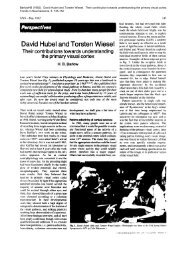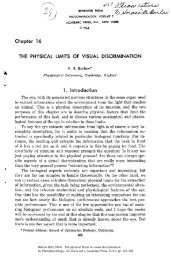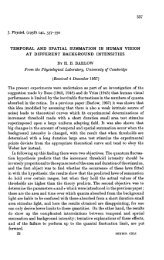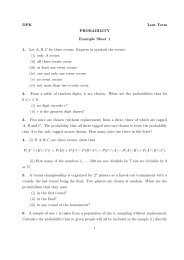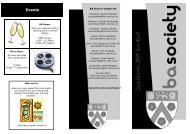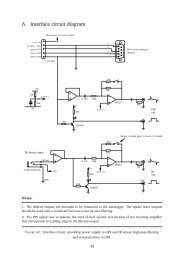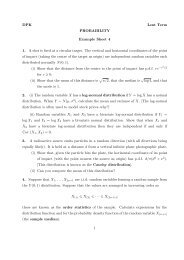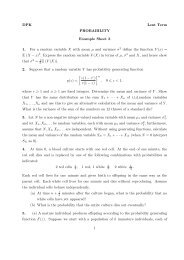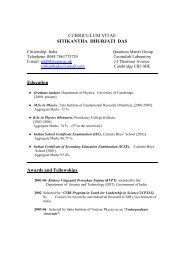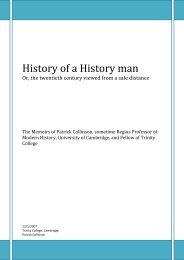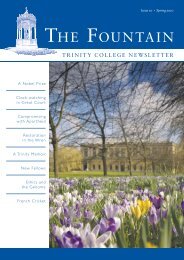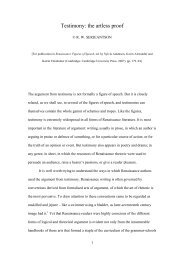Hume's General Rules - Serjeantson
Hume's General Rules - Serjeantson
Hume's General Rules - Serjeantson
You also want an ePaper? Increase the reach of your titles
YUMPU automatically turns print PDFs into web optimized ePapers that Google loves.
<strong>Serjeantson</strong>-28<br />
nothing is more usual, from haste or a narrowness of mind, which sees not on all<br />
sides, than to commit mistakes in this particular.’ 87<br />
It is skill in the involved business of separating adventitious from efficacious<br />
circumstances, then, that makes a philosopher. ‘All general laws’, wrote Hume in ‘On<br />
the Rise and Progress of the Arts and Sciences’ (first published in the Essays, Moral<br />
and Political of 1742), ‘are attended with inconveniences, when applied to particular<br />
cases; and it requires great penetration and experience, […] to discern what general<br />
laws are, upon the whole, attended with fewest inconveniences.’ 88 This is why, as he<br />
explained at the beginning of ‘Of Commerce’, it is the ability of philosophers ‘to<br />
abstract general rules or principles’ that distinguishes them from ‘shallow thinkers’<br />
for whom ‘Every judgment or conclusion […] is particular.’ 89 ‘Wise men’, Hume had<br />
explained in the section of the Treatise on ‘general rules’, are more capable of<br />
forming and applying such maxims than are ‘the vulgar’. 90 (A related concern<br />
underlies the distinction Hume makes at the beginning of the Enquiry Concerning<br />
Human Understanding between the ‘easy and obvious’ moral philosophy based on<br />
feeling, which is preferred by the ‘generality of mankind’, and the ‘accurate and<br />
abstruse’ philosophy based on speculation, which is the province of the ‘profound<br />
philosopher’.) 91 Hume, then, regarded the task of the working philosopher to be the<br />
formulation of general rules, maxims or principles by which to explain natural, and in<br />
his case particularly moral and political phenomena. I should like to close by<br />
suggesting it is this practical ambition that underlies many of his moral, political, and<br />
even literary essays.<br />
A number of Hume’s essays begin with the consideration of an established<br />
maxim or proverb. Thus ‘Of Taxes’ (first published in the 1752 Political Discourses)<br />
87 Hume, Enquiry Concerning Human Understanding, p. 81 n. 20.<br />
88 Hume, Essays, p. 116.<br />
89 Hume, Essays, pp. 253-55.<br />
90 Hume, Treatise, p. 150 (1.3.13).<br />
91 Hume, Enquiry Concerning Human Understanding, pp. 5-6.



